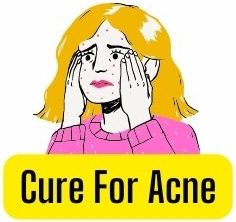In recent years, the gluten-free diet has gained popularity as a means to improve overall health and well-being. Gluten, a protein found in wheat, barley, and rye products, has been linked to several adverse effects on human health.
One such effect is its potential impact on skin conditions. For individuals who experience skin issues such as acne, eczema, or psoriasis, the prospect of achieving clear and healthy skin through dietary changes may seem like an alluring path towards freedom from these often uncomfortable and confidence-diminishing concerns.
Scientific research exploring the connection between gluten consumption and skin health has yielded some intriguing findings that suggest a possible link between the two. This article aims to provide an objective overview of this topic by examining relevant studies on the subject matter.
Furthermore, practical advice will be given on how to implement a gluten-free diet in pursuit of improved skin health while discussing additional factors that may contribute to maintaining optimal dermal well-being.
Key Takeaways
– Gluten consumption has been linked to adverse effects on skin health, and a gluten-free diet may alleviate skin-related issues for some people.
– Adequate water intake is crucial for maintaining skin elasticity, suppleness, and resilience against external factors, and can help alleviate inflammation-related skin conditions such as acne or eczema.
– Managing stress and sleep are vital components in achieving a healthy, glowing complexion, and engaging in regular mindfulness meditation and establishing a consistent sleep schedule can help improve overall skin health.
– Incorporating skin-friendly snacks and foods rich in nutrients that promote skin health can enhance the potential benefits of a gluten-free diet.
Understanding Gluten
Delving into the intricacies of gluten, a complex protein composite found in wheat, barley, and rye, reveals its potential impact on various aspects of human health including skin conditions.
Gluten sensitivity, or non-celiac gluten sensitivity (NCGS), is a condition where individuals experience symptoms similar to celiac disease but without the presence of specific celiac biomarkers.
The prevalence of NCGS is estimated to be between 0.5% and 13% of the general population, with manifestations ranging from gastrointestinal distress to neurological disorders and skin problems such as dermatitis herpetiformis.
As more people become aware of their body’s response to gluten-containing foods, there has been an increasing demand for gluten alternatives that provide both health benefits and culinary satisfaction.
The scientific community continues to explore the correlation between gluten consumption and skin issues, though definitive conclusions have yet to be reached.
However, anecdotal evidence suggests that some individuals may indeed experience clearer skin after eliminating gluten from their diet.
This could be due to a reduction in inflammation caused by immune system reactions triggered by gluten ingestion or other factors associated with high-gluten diets such as excessive sugar intake or unhealthy fats.
Despite limited causative evidence linking gluten-free diets directly to improved skin health, incorporating nourishing whole foods rich in vitamins A, C, E and zinc alongside well-tolerated grains like quinoa or rice can indeed support healthier skin while accommodating individual dietary preferences and restrictions.
The Gluten-Skin Connection
Examining the relationship between gluten and skin health reveals that adopting a gluten-free diet may alleviate certain dermatological conditions for some individuals. Dermatitis herpetiformis, an autoimmune disorder characterized by itchy, blistering skin lesions, has been directly linked to gluten consumption in those with celiac disease.
Furthermore, studies have shown that non-celiac gluten sensitivity can manifest as various skin-related symptoms, further supporting this connection.
In conclusion, while not everyone will experience improved skin health from eliminating gluten from their diets, there is compelling evidence suggesting that certain individuals with specific dermatological conditions may benefit from adopting a strictly controlled regimen free of this protein found in wheat and other grains.
Understanding one’s own body and potential sensitivities is crucial for finding optimal solutions to maintain radiant and healthy skin throughout life’s journey towards freedom from discomfort and distress associated with these troublesome conditions.
Scientific Research on Gluten-Free Diets and Skin Health
Investigating the impact of gluten-free diets on skin health through scientific research sheds light on potential benefits for individuals with specific dermatological conditions, as they may discover relief and an enhanced sense of well-being by embracing a diet devoid of this particular protein.
In recent years, numerous studies have been conducted to explore the correlation between gluten sensitivity symptoms and skin inflammation triggers.
Research has identified that certain skin disorders, such as psoriasis, eczema, and dermatitis herpetiformis (DH), are often exacerbated or directly linked to gluten consumption in susceptible individuals.
For instance, a study published in the Journal of the American Academy of Dermatology found that patients with psoriasis who followed a strict gluten-free diet experienced significant improvements in their skin condition compared to those who did not alter their dietary habits.
Similarly, another study published in Clinical Gastroenterology and Hepatology reported that patients with non-celiac wheat sensitivity exhibited noticeable improvement in their eczema symptoms after adhering to a gluten-free diet for six months.
Although more research is needed to establish causality and determine the extent of these findings’ generalizability, it is evident that removing gluten from one’s diet can potentially alleviate skin-related issues for some people experiencing an array of inflammatory responses due to its consumption.
How to Implement a Gluten-Free Diet for Skin Health
Embarking on a gluten-free diet for skin health entails careful planning and consideration of various factors to ensure optimal results and overall well-being. It is crucial to identify and eliminate sources of gluten from one’s daily meals, as even small amounts can trigger gluten sensitivity symptoms in susceptible individuals.
Furthermore, incorporating skin-friendly snacks and foods rich in nutrients that promote skin health can enhance the potential benefits of this dietary intervention.
To facilitate a smooth transition into a gluten-free lifestyle, it may be helpful to familiarize oneself with common sources of gluten as well as suitable alternatives. The table below provides examples of food items containing gluten alongside their respective substitutes:
| Gluten-Containing Foods | Gluten-Free Alternatives |
|---|---|
| ————————- | ————————– |
| Wheat-based pasta | Rice or quinoa pasta |
| Bread | Gluten-free bread |
| Soy sauce | Tamari sauce |
| Beer | Gluten-free beer |
Additionally, focus should be placed on including whole foods such as fruits, vegetables, lean proteins, and healthy fats in one’s diet to provide essential nutrients for maintaining not only skin health but also overall well being.
Consuming skin-friendly snacks like berries, nuts, seeds, dark chocolate (in moderation), and green leafy vegetables can further contribute to improved complexion by providing antioxidants and anti-inflammatory compounds that promote healing and rejuvenation processes within the body.
Other Considerations for Improving Skin Health
A comprehensive approach to improving skin health encompasses not only dietary changes, such as implementing a gluten-free diet, but also addressing other significant factors such as hydration, stress management, and sleep quality.
Adequate hydration is essential for maintaining skin’s elasticity and preventing dryness, while effective stress management techniques can reduce inflammation and promote a healthier complexion.
Furthermore, obtaining sufficient sleep enables the body to engage in vital repair processes that contribute to overall skin health.
Importance of Hydration
Maintaining optimal hydration levels, akin to a flowing river ensuring the vitality of its surroundings, plays a crucial role in promoting overall skin health and may enhance the effects of adopting a gluten-free diet for individuals with skin concerns.
Adequate water intake is essential for maintaining skin elasticity, suppleness, and resilience against external factors such as sunlight and pollution.
Hydration benefits include flushing out toxins from the body, improving cell function, and ensuring proper nutrient absorption, all of which contribute to a clearer complexion and healthier-looking skin.
Furthermore, research suggests that staying well-hydrated can also help alleviate inflammation-related skin conditions such as acne or eczema.
In conjunction with implementing dietary changes like going gluten-free to address specific skin issues, it is essential for individuals to maintain an appropriate water intake level throughout the day.
Recommendations vary depending on factors such as age, gender, physical activity level and climate; however, the general guideline is approximately 3.7 liters (13 cups) per day for men and 2.7 liters (9 cups) per day for women.
To optimize hydration status and reap its potential benefits on skin health alongside a gluten-free diet regimen or other lifestyle modifications tailored towards achieving radiant complexion free from blemishes or irritations – one must remember that proper hydration serves as an indispensable foundation upon which improvements may thrive like flourishing flora along the riverside.
Managing Stress and Sleep
Optimizing stress management and obtaining sufficient sleep are vital components in achieving a healthy, glowing complexion, as these factors significantly influence the body’s ability to repair and rejuvenate skin cells.
Chronic stress has been linked to increased inflammation in the body, which can exacerbate existing skin conditions such as acne or eczema. Furthermore, inadequate sleep may hinder the skin’s natural repair processes and contribute to premature aging.
Incorporating stress reducing techniques and sleep optimization into one’s daily routine can greatly improve overall skin health.
Implementing these evidence-based strategies for managing stress and optimizing sleep will not only contribute to clearer skin but also enhance overall well-being by promoting mental clarity, emotional balance, and physical vitality.
Frequently Asked Questions
Is there a specific gluten-free diet plan recommended for individuals with skin issues?
While exploring the potential benefits of a gluten-free diet for individuals experiencing skin issues, it becomes crucial to consider the varying needs and responses among different people.
Unraveling the intricate connection between skin nutrition and gluten free benefits could potentially lead to effective personalized dietary interventions.
In this regard, evidence-based research indicates that some individuals with specific skin conditions such as dermatitis herpetiformis or those with celiac disease may experience significant improvements in their symptoms upon adopting a gluten-free diet.
However, it is essential to highlight that further studies are required to establish a definitive correlation between gluten exclusion and amelioration of various skin conditions.
Consequently, this prompts an imperative call for consultation with healthcare professionals before embarking on any diet plan tailored towards addressing individual skin concerns.
Are there any potential side effects or drawbacks to following a gluten-free diet solely for the purpose of improving skin health?
Although adopting a gluten-free diet may potentially alleviate skin inflammation causes in individuals with gluten intolerance symptoms, there are possible drawbacks to consider when pursuing this dietary approach solely for the purpose of enhancing skin health.
Firstly, a gluten-free regimen may result in nutritional deficiencies, specifically in fiber, iron, calcium, and B vitamins, as it often entails restricting or eliminating nutrient-rich whole grains.
Secondly, reliance on processed gluten-free products can inadvertently lead to increased consumption of unhealthy fats and sugars.
Lastly, adhering to a gluten-free diet without proper guidance might foster restrictive eating patterns that could negatively impact one’s psychological well-being.
Consequently, it is essential to consult with healthcare professionals before embarking on any significant dietary modifications for the primary objective of improving skin health.
How long does it typically take to see improvements in skin health after eliminating gluten from one’s diet?
A study published in the Journal of Clinical Gastroenterology found that 66% of individuals with non-celiac gluten sensitivity experienced improvements in skin health after following a gluten-free diet for six months. This highlights the potential gluten free benefits associated with alleviating skin inflammation for some individuals.
However, it is crucial to note that results may vary depending on factors such as individual sensitivities and adherence to a strict elimination protocol. As evidence suggests that skin improvements can manifest within weeks or take several months, patience and consistency are essential when evaluating the effectiveness of a dietary change focused on enhancing one’s dermal well-being.
Thus, embracing a gluten-free lifestyle may offer newfound freedom from persistent skin concerns for those who experience inflammatory reactions triggered by gluten consumption.
Are there any skincare products or topical treatments that can complement a gluten-free diet in promoting healthier skin?
Incorporating gluten-free skincare products and topical treatments into a daily regimen may further promote healthier skin for those adhering to a gluten-free diet.
Evidence suggests that certain individuals with gluten sensitivities or celiac disease may experience an improvement in their skin health through the use of such products, as they eliminate potential irritants that could exacerbate existing conditions.
Topical treatments containing natural anti-inflammatory ingredients, such as green tea extract or niacinamide, can complement the benefits derived from a gluten-free diet by soothing irritated skin and promoting overall skin health.
Thus, combining internal dietary changes with external skincare adjustments offers a comprehensive approach to achieving optimal skin wellness while catering to one’s desire for freedom from discomfort and visible imperfections.
Can other food sensitivities or allergies also contribute to skin issues, and if so, how can they be identified and addressed alongside a gluten-free diet?
In the vast tapestry of human health, one cannot overlook the intricate web that connects our dietary choices to various manifestations on our skin. Indeed, other food sensitivities or allergies may contribute to skin issues, thereby necessitating a careful exploration of potential culprits beyond gluten.
Skin sensitivity triggers can be myriad and diverse, ranging from dairy products and nuts to nightshade vegetables and artificial additives. To identify these elusive offenders and address them in conjunction with a gluten-free diet, elimination diets emerge as an invaluable tool for disentangling this complex interplay between nutrition and dermatological well-being.
By systematically removing specific foods from one’s diet and observing any improvements in skin condition, individuals can gradually craft their personalized dietary regime that liberates them from the shackles of persistent skin issues while empowering them with newfound knowledge about their unique physiological responses to various food items.
Conclusion 💭
In conclusion, the relationship between gluten consumption and skin health remains an area requiring further investigation.
While anecdotal evidence suggests that a gluten-free diet may improve certain skin conditions, rigorous scientific research is needed to establish a definitive link and provide guidelines for incorporating this dietary change into skincare routines.
Despite these limitations, it is crucial to acknowledge the potential impact of diet on overall health, including skin well being.
Emphasizing a balanced and nutrient-dense diet with attention to possible food sensitivities can contribute significantly to maintaining optimal skin health.





